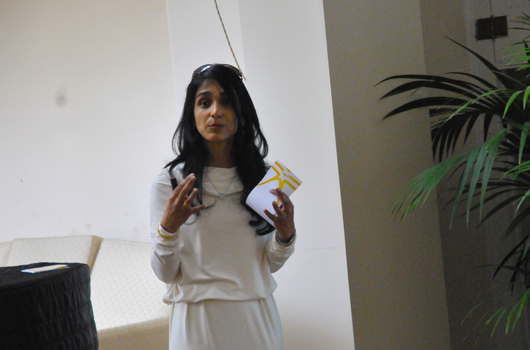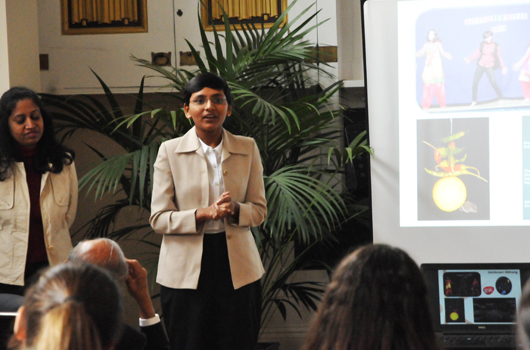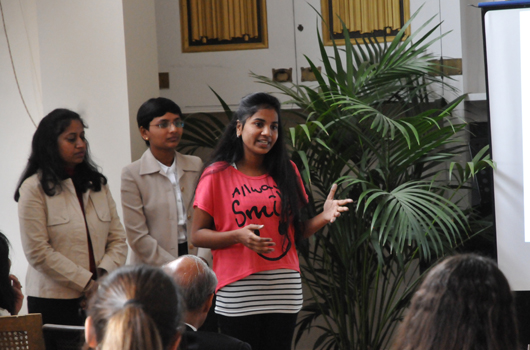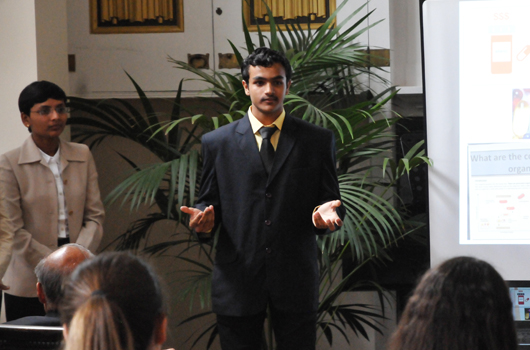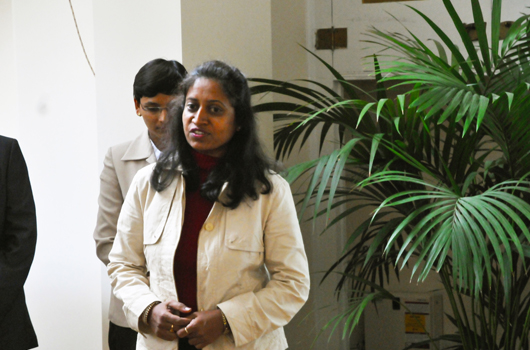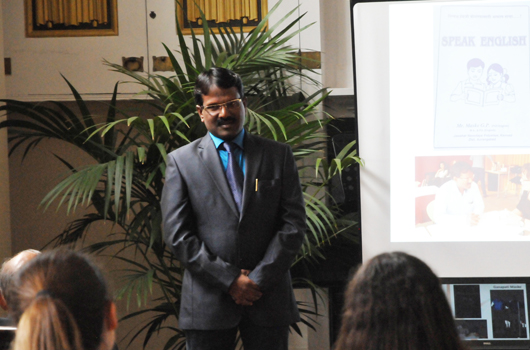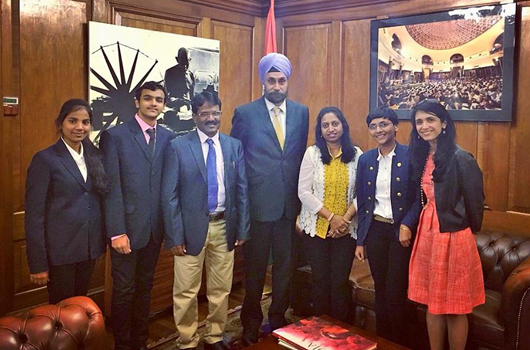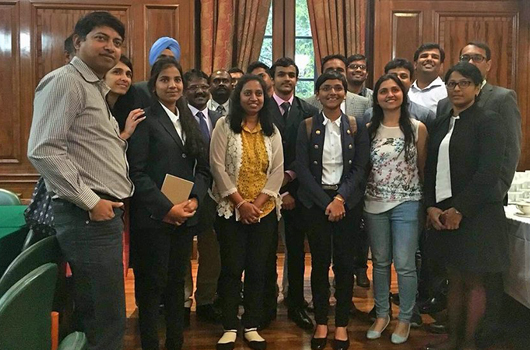 On Wednesday 10th August, Somerville College hosted a presentation evening to celebrate the success of, and bring to a close, the first residential of The Karta Initiative.
On Wednesday 10th August, Somerville College hosted a presentation evening to celebrate the success of, and bring to a close, the first residential of The Karta Initiative.
Founded by Ranjita Rajan in 2015, The Karta Initiative aims to widen access to world-class higher education for brilliant low income students from developing and emerging countries. In partnership with The Tata Trusts, The Karta Initiative plans to have scale impact with talent from India. The first residential welcomed to Oxford three students and two teachers from Jawahar Navodaya Vidyalaya schools in India. These schools were identified due to their strong ethos, reflected in the motto ‘Come in to learn, go out to serve’. JNV schools are co-educational boarding schools specifically tasked with educating gifted children from rural India. 600 schools provide an education for over 240 thousand students.
After submitting a 200 word essay and a two minute video, three students, Adesh Vaidya, Vaishnavi Abhang and Dipti Rapte, were selected to take part in the residential. These students exhibited the sense of service of the JNV schools, and a burning passion to help ‘their India’ by utilising their education. In order to ensure longterm impact two teachers, Sunita Khade and Ganapati Maske, were selected to take part for their dedication to teaching and widening access for their students.
Thanks to the generosity of Pembroke College and the Sutton Trust, the five participants were able to experience a week long science summer school in Oxford. In addition, Somerville College, through the Oxford India Centre for Sustainable Development, offered mentorships, and the participants were invited to the Indian High Commission of India for a day.
Rajan opened the presentation evening by speaking passionately about the values of the Initiative. Whilst talent resides everywhere, opportunity does not; by identifying ‘diamonds in the rough’ and removing barriers of aspiration, information and finance, Rajan hopes to transform access to higher education and drive sustainable development.
Each participant was invited to give a talk detailing why they are passionate about further education and what they have gained from The Karta Initiative. A common theme touched upon by all three students was the devastating impact of a lack of healthcare in rural India. Abhang spoke of the need to replace superstition with science, and her personal interest in neuroscience. She described the residential as the best experience of her life, and was keen to share the knowledge she had gained with her juniors.
Before coming on the residential, Rapte’s dream had been to become a doctor and provide healthcare in her local community; since experiencing the many different facets of science, and the multitude of ways one can improve access to healthcare she has since decided her passion lies in research. Similarly, Vaidya spoke about his new found interest in developing new medicines through research in biochemistry. He especially enjoyed producing a poster in a bio-medicine workshop at the summer school.
All five participants were filled with gratitude and appreciation for the opportunity to widen their knowledge of the sciences, and to visit the UK. Furthermore, Rapte spoke of the hope she was filled with at the High Commission when he realised that this opportunity had given him a platform to speak to those with the power to enact a change in policy, as well as bringing him closer to enacting change in healthcare himself.
Khade began her talk by touching on the difficulties of teaching science to students in rural India. Many students blindly follow the superstitions taught to them by their families; for example, when asked to pass her a salt, one student responded that if they were to do so, Khade would become their enemy. When teaching, Khade must often explain the reasons behind superstitions, and encourage her students to think critically.
Both Khade and Maske spoke of the differences in teaching between Oxford and their own schools; they hope to return to India with new teaching methods which encourage the students to think for themselves, and to share these methods with their colleagues (most especially, Khade enjoyed the poster making activities!)
Both Dr Alice Prochaska, Principal of Somerville, and Dame Lynne Brindley DBE, Master of Pembroke College spoke of the privilege it was to host The Karta Initiative. Alice Prochaska emphasised the close links Somerville has to India, beginning with Cornelia Sorabji in 1889 and continuing today through the work of the Oxford India Centre.
She spoke of how the residential has strengthened these links, and the importance of helping each other in the future. Brindley spoke of the delight she took in witnessing the participants grow from shy and inquisitive into confident and opinionated speakers during their tutorials, and her realisation that this residential was about friendships and connections that would last a lifetime.
The evening concluded with a talk from Vindi Banga, Chair of Trustees of the Karta Initiative. Banga focused both on the achievements of the past two weeks and the importance of expanding the Initiative in order to touch many more lives. He spoke of the benefits of utilising the JNV schooling system to deploy interventions, and the importance of creating easy access to information and financial aid in rural India.
Each student was presented with a certificate to commemorate their time on the residential, and applause filled the room, for the achievements of both the participants and Rajan. Her bold vision was translated into an incredibly successful opportunity for five passionate and generous individuals, as well as for those of us privileged enough to be involved in this venture.
For more information on the future plans of the Karta Initiative, please follow this link. Also, please view further press coverage in the links below.
http://indiagbnews.com/education/india-house-hosts-karta-scholars/
https://www.asian-voice.com/Student/Education/India-House-hosts-the-Karta-Scholars
http://www.newkerala.com/news/2016/fullnews-103129.html
Article by Development Office Assistant, Brigitte Stenhouse.
